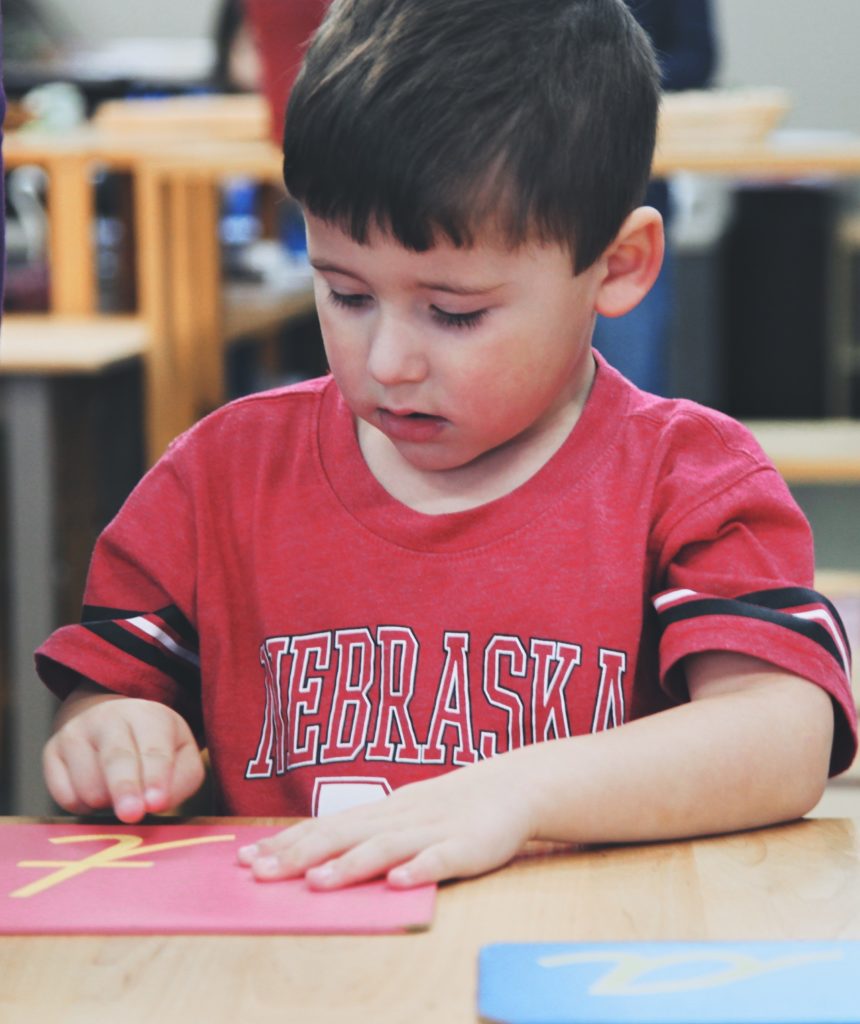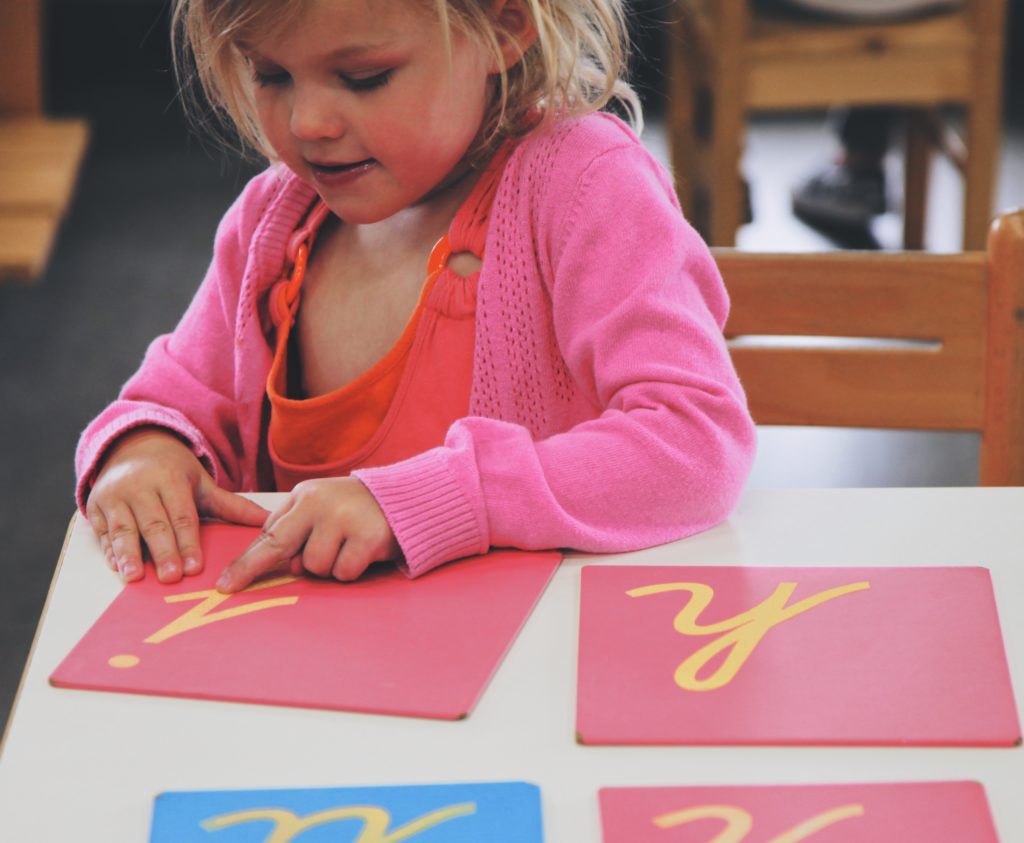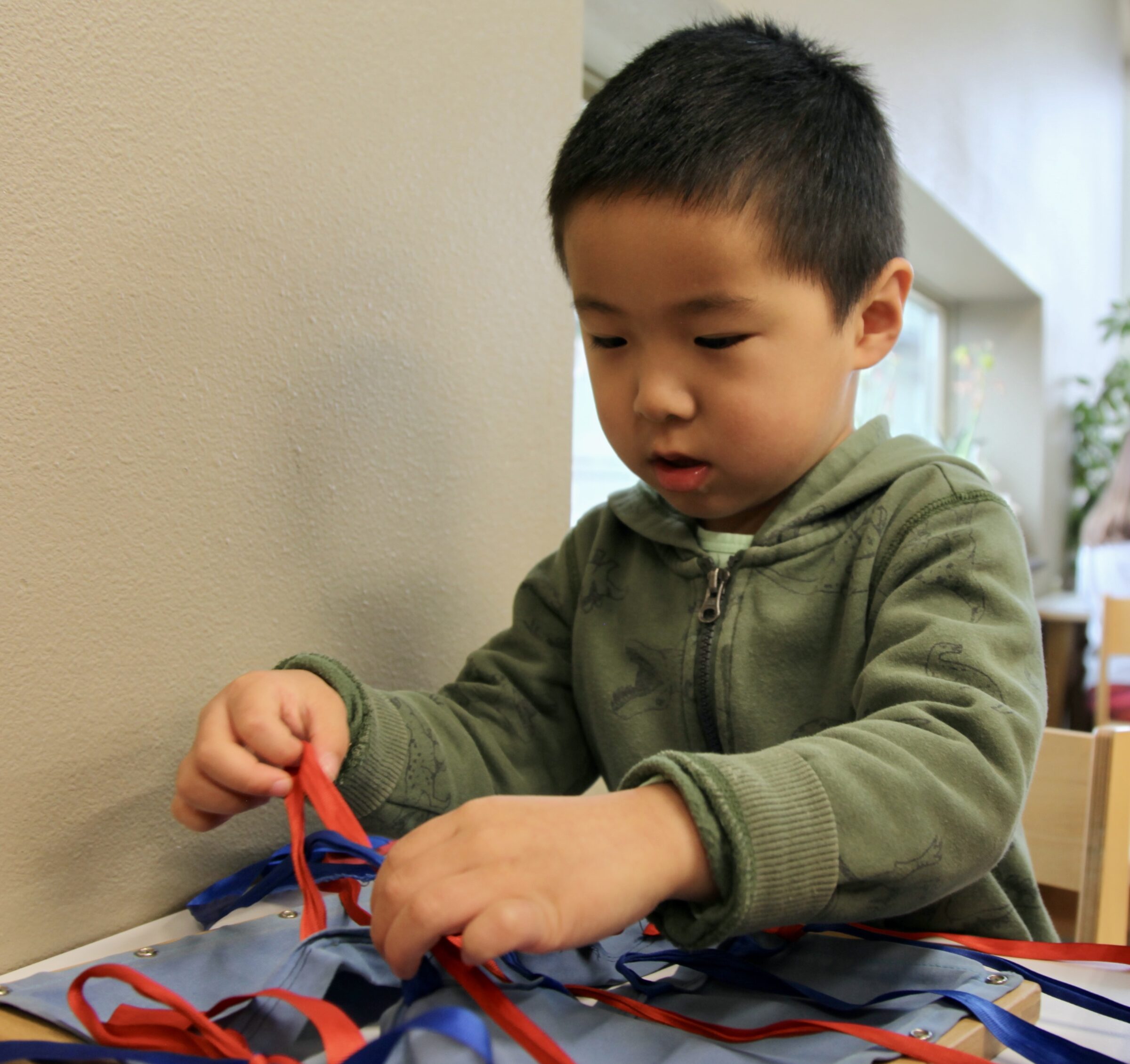Letter Sounds and Letter Names
Thoughts & Reflections
Let’s sing the ABC’s! It’s not uncommon for children to come to school “knowing their letters.” Perhaps they can name one or two, they know how to sing the song as generations have before them (with ellemenopee right in the middle), and perhaps can identify “S for Sam! That’s my letter!”
All of these are important. There is an order to the letters, and a song is a quick way to pass on that knowledge. Even before you can spell your name, you can learn to identify that swirly, or pointy, or simple letter that indicates, “me!” In most settings, spelling will involve stating the letters aloud to a listener, and there’s always a RIGHT way to spell something, as much as there is nuance and troublesome spelling in English.
If a child says, “I know that, that’s M” and says “em,” like those small bright candies, we might respond with, “Yes, that is this letter’s name, would you like to know what sound it makes?”
We start with writing, not reading, and we start with sounds, not letter names.
Which sounds a bit ridiculous, until the reason is uncovered.
We start with sounds, because, most of the time, that “m” letter does not make the sound “em.” Most of the time, it makes the sound “mmm.” In fact, when we say “em,” it’s to start words like “empathy” and “empty,” not “mouse” or “Mama.”
English isn’t simple. We have phonograms for those unique sounds requiring more that one letter, such as “ar” or “ee.” And we use “ie,” “ei,” “ee,” “ey,” “e,” all to make that “eeee” sound — believe, either, bee, key, me.
English is tough. We start with the sound this letter most frequently makes, and we go from there. Providing the sound isn’t comprehensive, but it’s a start. By giving a child letter sounds, we’re giving them a tool that sets them on their way toward writing and reading. Sounding out a word phonetically, decoding what sounds they hear in a word and what letter makes that sound (writing), or recalling what sound that letter usually makes and combining it with its partners to form something coherent (reading).
We know our friends not because they come into a room announcing their name, but by the sound they make — the timbre of their voice. We can immediately identify an emergency by a siren, or an iconic movie set in space by an incomparable soundtrack.
Names are important; identity lies in sound.
Written by:
Charlotte Snyder






